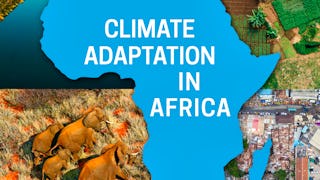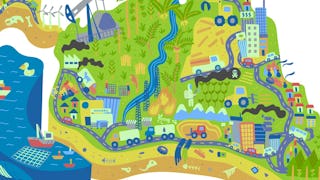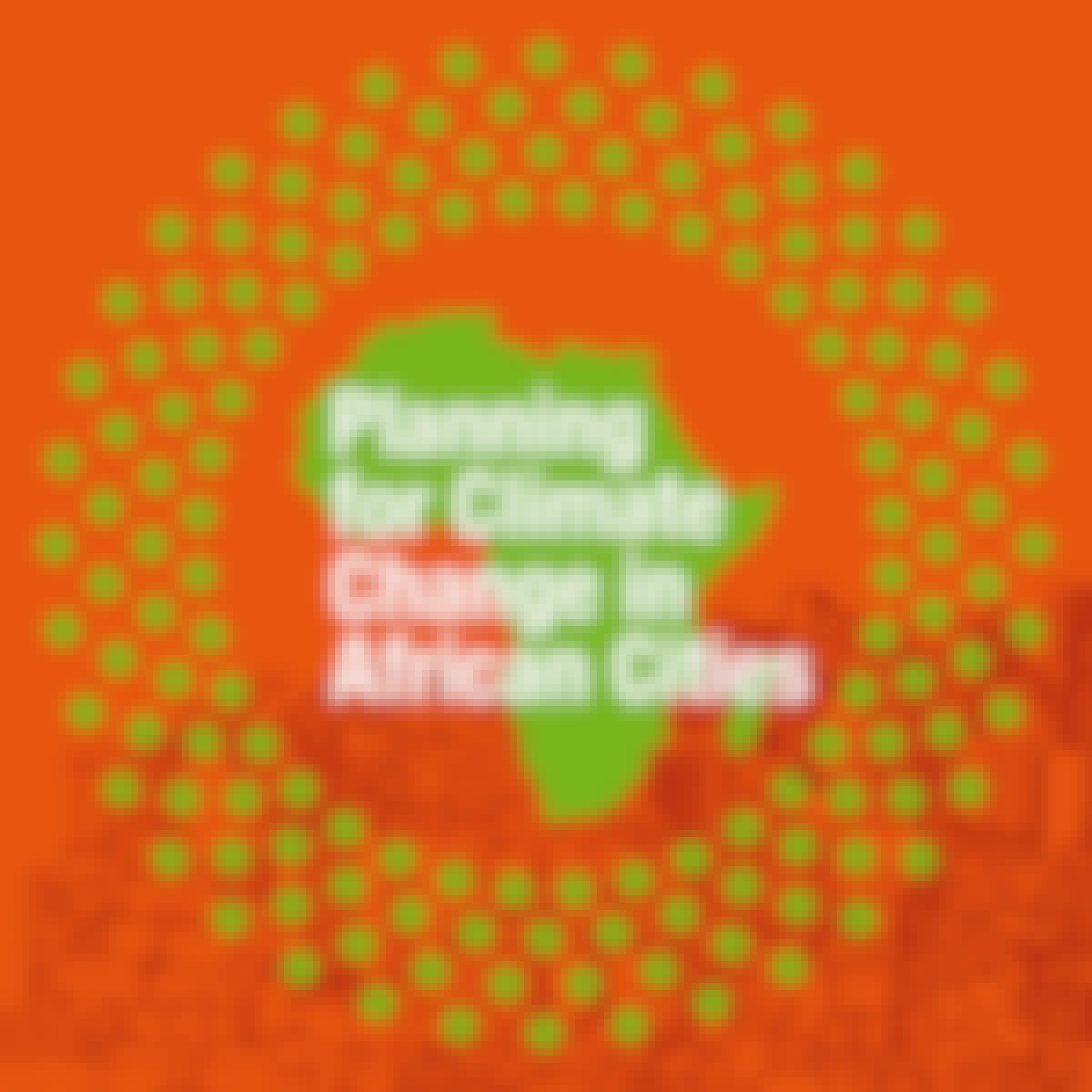Filter by
SubjectRequired
LanguageRequired
The language used throughout the course, in both instruction and assessments.
Learning ProductRequired
LevelRequired
DurationRequired
SkillsRequired
SubtitlesRequired
EducatorRequired
Explore the Climate Course Catalog
 Status: Preview
Status: PreviewUniversity of Geneva
Skills you'll gain: Water Resources, Environment and Resource Management, Natural Resource Management, Environmental Laws, Environmental Policy, Energy and Utilities, Governance, International Relations, Community Development, Public Policies, Policy Analysis
 Status: Preview
Status: PreviewThe University of Edinburgh
Skills you'll gain: Mitigation, Environmental Policy, Community Organizing, Environment, Social Justice, Environmental Resource Management, Natural Resource Management, Governance, Environmental Science, Public Policies, Education and Training, Scientific Methods, Economics
 Status: Preview
Status: PreviewUniversity of Copenhagen
Skills you'll gain: International Relations, Political Sciences, Environmental Issue, Environmental Policy, Advocacy, Systems Thinking, Community Organizing, Environment, Social Sciences, Lobbying, Public Policies, Innovation, Governance
 Status: Preview
Status: PreviewDuke University
Skills you'll gain: Environmental Social And Corporate Governance (ESG), Sustainability Reporting, Performance Measurement, Stakeholder Engagement, Investment Management, Governance, Key Performance Indicators (KPIs), Benchmarking, Asset Management, Data-Driven Decision-Making, Verification And Validation, Due Diligence
 Status: Preview
Status: PreviewUniversity of Cape Town
Skills you'll gain: Water Resources, Strategic Planning, Environmental Policy, Mitigation, Environmental Science, Project Finance, Environment, Capacity Planning, Finance, Natural Resource Management, Environment and Resource Management, Risk Management, Needs Assessment, Socioeconomics, Stakeholder Engagement, Food and Beverage, Vulnerability, Governance
 Status: Preview
Status: PreviewPontificia Universidad Católica de Chile
Skills you'll gain: Environment, Socioeconomics, Environmental Issue, Social Justice, Environmental Resource Management, Natural Resource Management, Systems Thinking, Social Sciences, Biology, Community Development, Cultural Diversity
 Status: Preview
Status: PreviewIndian Institute for Human Settlements
Skills you'll gain: HVAC, Energy and Utilities, Building Design, Building Services Engineering, Architectural Engineering, Thermal Management, Water Resources, Civil Engineering, Resilience, Architectural Design, Environmental Engineering, Environmental Issue, Cost Estimation, Financial Analysis
 Status: Preview
Status: PreviewUnited Cities and Local Governments of Africa
Skills you'll gain: Environmental Policy, Environmental Issue, Community Development, Environmental Resource Management, Mitigation, Policy Analysis, Social Sciences, Natural Resource Management, Decision Support Systems, Governance, Vulnerability, Socioeconomics, Environmental Science, Economic Development
 Status: Preview
Status: PreviewUniversity of Copenhagen
Skills you'll gain: Environment, Environmental Science, Corporate Sustainability, Sustainability Reporting, Environmental Resource Management, Environmental Policy, Research, Systems Thinking, Economics, Policy, and Social Studies, Public Policies, Economic Development, International Relations
 Status: Preview
Status: PreviewUniversitat Autònoma de Barcelona
Skills you'll gain: Research Methodologies, Social Sciences, Environmental Issue, Environmental Policy, Environment, Environmental Monitoring, Cultural Sensitivity, Governance, Natural Resource Management, Cultural Diversity, Data Collection, Vulnerability, Fundraising
 Status: Preview
Status: PreviewSkills you'll gain: Corporate Sustainability, Environmental Social And Corporate Governance (ESG), Business Transformation, Business Ethics, Organizational Change, Socioeconomics, Business Strategy, Systems Thinking, Stakeholder Management, Innovation
 Status: Preview
Status: PreviewPontificia Universidad Católica de Chile
Skills you'll gain: Energy and Utilities, Systems Of Measurement, Environmental Issue, Environmental Resource Management, Mitigation, Natural Resource Management, Environment, Physics, Economic Development, Environmental Engineering, Environmental Science, Electric Power Systems, Mathematical Modeling
In summary, here are 10 of our most popular climate courses
- Water Resources Management and Policy: University of Geneva
- Climate Solutions: The University of Edinburgh
- Making Democracy Fit for Climate: University of Copenhagen
- Impact Measurement & Management for the SDGs: Duke University
- Climate Adaptation in Africa: University of Cape Town
- Sustentabilidad: los desafíos desde Latinoamérica: Pontificia Universidad Católica de Chile
- Net-Zero Building Fundamentals: Indian Institute for Human Settlements
- Planning for Climate Change in African Cities: United Cities and Local Governments of Africa
- The Sustainable Development Goals – A global, transdisciplinary vision for the future: University of Copenhagen
- Climate change and Indigenous People and local communities: Universitat Autònoma de Barcelona










